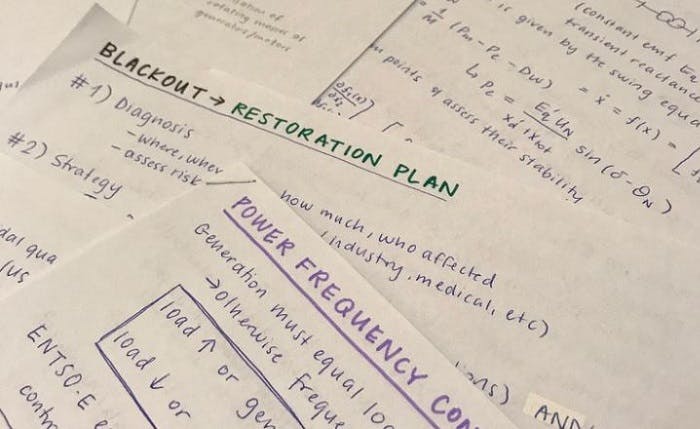InnoBlog: European education model & studying for exams

In every EIT InnoEnergy Master’s programme, the cohort of students is diverse. People come from all over the world, drawn by a common interest in energy. What better place to study than Europe, which is leading the energy transition with innovative policies such as European Green Deal (EU climate policy that aims for Europe to become the first climate neutral continent by 2050) and breakthrough technologies?
However, the education model around the world – and even within Europe – varies considerably. What are the similarities and differences?
Grading system at KTH and KU Leuven
I did my Bachelor’s at Duke University in the US, where the grading system is typically composed of several components – exams, projects, lab work, homework. However, the grading system in Europe is much more sparse; the bulk of the grade will likely come from an exam, at the end of the semester. The exam might be complemented with either a few assignments or a project, but generally only one other component. This was the case for my first year at KTH Royal Institute of Technology in Stockholm, Sweden, as well as my second year at KU Leuven in Belgium.
However, even between Stockholm and Leuven, I found considerable differences. Leuven has a heavy focus in theory and research, which is also reflective of the university’s long history. Meanwhile, KTH had a mixed approach, combining theory, practical or industrial applications, and more.
New experiences
My fellow classmates experienced their own differences as well. One was used to working alone at his Bachelor university, so it was a completely new experience to have projects in teams with other students. Another was surprised to have had assignments during the semester; his Bachelor’s university adjudicated his entire grade through only one final exam.
There is no right or wrong system, but understanding the differences can help you succeed during your studies.
Put the work in at the beginning
For one, do not underestimate the value of regularly studying. From the beginning of the semester, review your notes after every lecture. Many courses tend to be rather front-heavy with the material; at first the fundamentals are laid out and reviewed, then the most important concepts are taught, with the remainder of the semester then focused on applications of the material, extensions, examples, and/or a project/assignment. Therefore, it is important to put the work in at the beginning, otherwise you risk falling behind at the later stage.
Form study groups with your other students, as studying in a social context often encourages a commitment to regular learning. It is also beneficial to ask questions and explain the concepts to your peers, to test understanding.
My tips and tricks to obtain the best possible grade
Since the end of semester exam comprises the bulk of the grade, what are some tips and tricks to obtain the best possible grade?
If you have been regularly studying, you should be right on track. But now it is time to integrate everything you have learned, to see the relationships and the context. Produce your own study guides, to summarise the key information to know. It helps to memorise and learn by writing things down; figure out whether typing, or physically writing, works better for you. List your questions and utilise your peers or professors to answer them. It is also good to familiarise yourself with the format of the exam and the grading criteria, which can differ between different universities.
At KTH, all exams were written. To prepare, I studied the course notes and went through example exercises; the focus is on analytical thinking, what assumptions can you make, and how you solve a problem. At KU Leuven, many exams are oral. In oral exams, it is important to understand how different parts of the course, and different concepts, are related to each other; this way, you demonstrate critical thinking and the ability to synthesise your knowledge.
With these tips and tricks to studying at European universities and taking exams, you should be all set! Best of luck!

